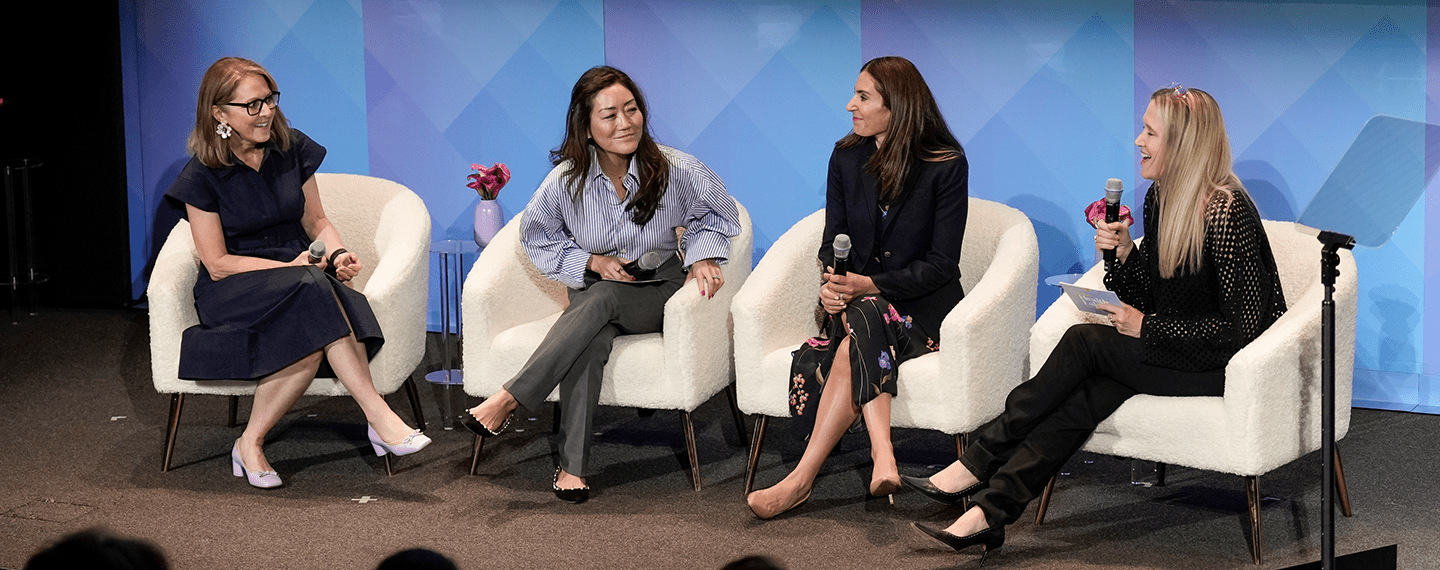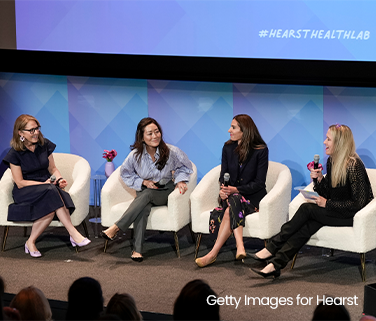Healthcare leaders and advocates gathered in New York City for the inaugural Women's Health "Health Lab" on May 15 to discuss ways to prioritize and advocate for women's health and close gaps in women's healthcare needs. The event coincided with National Women's Health Week and National Osteoporosis Awareness and Prevention Month and featured prominent voices, including First Lady Dr. Jill Biden, Chelsea Clinton and actress Christy Turlington, among others.
A highlight of the event was Amgen's insightful panel, "The Secret to Standing Tall" – which explored the often-overlooked issue of osteoporosis and encouraged women to advocate for their bone health. Moderated by Jane Francisco, editor-in-chief of Good Housekeeping, the panel featured personal stories and expert insights from Laura Rinck, an advocate living with osteoporosis, Anna Haddad, founder/CEO of ONEYOGAHOUSE; and Dr. Kristi Tough-DeSapri, founding physician and director of Bone and Body Women's Health. The discussion underscored the importance of recognizing and addressing osteoporosis as a significant women's health concern.
Real Stories Inspire Others to Take Action
During Amgen's panel, Laura captivated the audience with her inspiring story of the significant impact severe osteoporosis had on her life, as well as overcoming cancer in her 20s.
Laura had several risk factors for osteoporosis. Not only had she gone through menopause, but she had also undergone cancer treatment and radiation, both of which can contribute to lower bone density.1
One year after being diagnosed with osteoporosis, Laura obtained a second bone mineral density scan that indicated she had "the bones of a 90-year-old." Her doctor suggested she limit her physical activities, so Laura had to avoid some of her hobbies including biking, skiing, and hiking.
"I realized that the strength of my bones is more important than the depths of my wrinkles," Laura said.

Laura Rinck, an advocate living with osteoporosis.
She worked with her doctor to start treatment to help increase her bone density. Feeling hopeful since beginning treatment, Laura is excited to see the results of her next bone density scan. During the event, audience members shared that Laura's personal narrative inspired them to be more proactive about their bone health and get a bone density scan. Overwhelmed by this collective response, Laura remarked, "We are truly at the beginning of this conversation, and we have a lot of work to do."
Bone Density Scans Are as Important as Mammograms and Cholesterol Tests for Women as They Age
During Amgen's panel, Dr. Tough-DeSapri highlighted the risk factors for osteoporosis and the urgent need to prioritize this silent disease.
"One in two women over the age of 50 will sustain an osteoporosis-related fracture, and I don't use that to instill fear, I use that as a motivator," said Dr. Tough-DeSapri.
For postmenopausal women and those at high risk for fracture, including women who have received certain treatments for breast cancer, Dr. Tough-DeSapri stressed the importance of obtaining a dual-energy X-ray absorptiometry, or DXA scan to measure bone density and how much mineral, such as calcium, is in the bones.2 Osteoporosis can be diagnosed with a DXA scan, a history of a fracture, or risk factors for osteoporosis.
The panel also emphasized the need for women to advocate for their bone health alongside other health concerns that tend to arise around the time of menopause. Most women in this age group know when they should receive mammograms, but getting a DXA scan often flies under their radar. Dr. Tough-DeSapri encouraged the audience to talk about osteoporosis risk factors with their doctor, ask if a DXA scan is appropriate for them and discuss treatment options if they have osteoporosis.
As Dr. Tough-DeSapri noted during the panel, "Menopause [presents] a good snapshot of time where we're thinking about our cholesterol, we're thinking about our breast health, but we should also be thinking about our bone health."
By bringing together key stakeholders across the healthcare landscape, the Women's Health "Health Lab" event successfully elevated critical issues, including the need for increased awareness around bone health and osteoporosis. It also emphasized the importance of empowering women to take control of and advocate for their own health.
References
- Bone Health and Osteoporosis Foundation. What Women Need to Know. https://www.bonehealthandosteoporosis.org/preventing-fractures/general-facts/what-women-need-to-know/. Accessed May 2024.
- Bone Health and Osteoporosis Foundation. Evaluation of Bone Health/Bone Density Testing. https://www.bonehealthandosteoporosis.org/patients/diagnosis-information/bone-density-examtesting/. Accessed May 2024.





